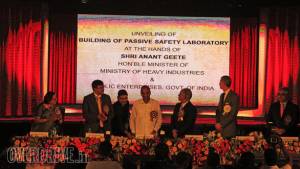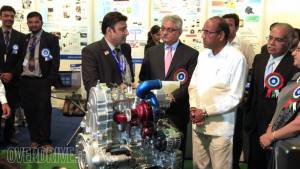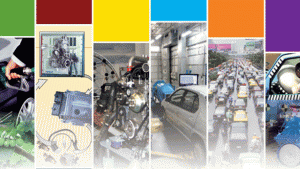Are fresh graduates prepared to be part of the automotive industry?
I moderated a panel discussion on Industry Academia Enclave on Automotive Engineering during the Symposium on International Automotive Technology 2015 (SIAT 2015) organised by Automotive Research Association of India (ARAI) at Pune on January 24, 2015. The topic being discussed was the widening gap between the Indian automotive industry and academic institutions. The panel comprised of some distinguished guests speakers, all of whom were intimately involved in empowering a young workforce by improving their industry skills.
In its interaction with the academia, industry's expected time frames are immediate, and investment is directed towards efforts that promise result-oriented solutions. The problem being discussed to be more specific was how human resources coming into the automotive industry is just not ready to hit the floor running. It still takes the industry anything from eight months to a year to prepare these graduates or postgrads to be anywhere near employable level. This is a serious issue, especially considering the attention we are slowly focussing towards making India a global R&D hub. The automotive industry is even expected to contribute around 10 per cent to the GDP by 2025 but without adequately skilled workforce coming into the industry this could be a tough ask.
The gap between industry's needs and the academic community's aspirations appears to be considerably large. In the course of the discussion, there were several opinions voiced pointing out the elements that contributed to this problem. The most significant of these, however, had me completely stumped and it's a very basic problem. Our educators have little or no clue about how the industry operates. There are hardly any academicians out there who have the relevant or necessary industry skills themselves to impart that education to those they are teaching. This is a huge problem! Most academicians learnt how to teach from textbooks, which ironically in most cases are compiled by the industry. As a result of which the academicians themselves aren't well versed with movements in technology or processes and systems that are currently applicable.
This, however, isn't an impasse and the simplest solution to this came from the panelists themselves. Tom Brewer, associate vice president of Tennessee Tech University worked for 30 years in the industry before venturing out as an academician. His opinion - establish programmes between academies and industry that have measurable metrics. Another sharp opinion that came up was from Devdutta Chandavarkar, a vice president at Mercedes-Benz whose responsibilities involve after sales and retail training, Devdutta is also responsible for initiating the school of mechatronics at Mercedes-Benz that has enhanced the skill levels of several employees within the company. In his opinion India needs more ITI institutes that provide a hands on approach to manufacturing and technology learning. His suggestion of getting faculty to be involved intimately with the automotive industry is one way of getting a collaborative learning programme in place. Pratibha Batchu, also a panelist who guides e-learning schemes through Robert Bosch Engineering and Business Solutions suggested how the internet could break the deadlock by offering continued learning programs to professionals to enhance their skills. In this manner several suggestions did come forward, most of them sound and with enough merit to be inculcated within the various academies imparting engineering knowledge.
What was apparent by the end of the discussion was that the principal solution that could improve the human resources is faculty enhancement. On a more secondary level collaborative learning programs and e-learning could help fill in some gaps. But here are a couple of suggestions on what I feel can be done and its something that comes from my own experiences being an automobile engineer.
1. Collaborative programmes will make a big difference. The automotive industry anyway sets the skills standards, so why not make them also responsible for imparting those skills as academicians. Establish collaborative outreach programmes where students use their time during breaks to intern at various companies. This should be graded and imposed for every year as a student. Or for those two months of summer break, the automotive industry could appoint academicians from within the industry to run additional skill enhancement programmes with professionals running the faculty.
2. The automotive industry can step up and establish skill development programmes within the academy which would be graded by the industry and rewarded with immediate placement on completing term.
There is, however, no substitute to a hands-on approach to education and to me it's imperative that students utilise every opportunity they can get to improve their skills. Presently employability is between 20-30 per cent, which means only about 30 per cent of students of the lakhs of engineers being churned out every year can hit the ground running.
There is a need to create avenues for academia and industry interaction through all the phases of technology development, starting from conceptualisation down to commercialisation. Programmes instituted by the Automotive Skills Development Corporation (ASDC) do a tremendous job of enhancing standards, imparting skills in five specific areas, sales, supply chain, manufacturing, R&D and diagnostics but that is still not enough. More needs to be done, urgently.
This column appeared in the March 2015 issue of OVERDRIVE














